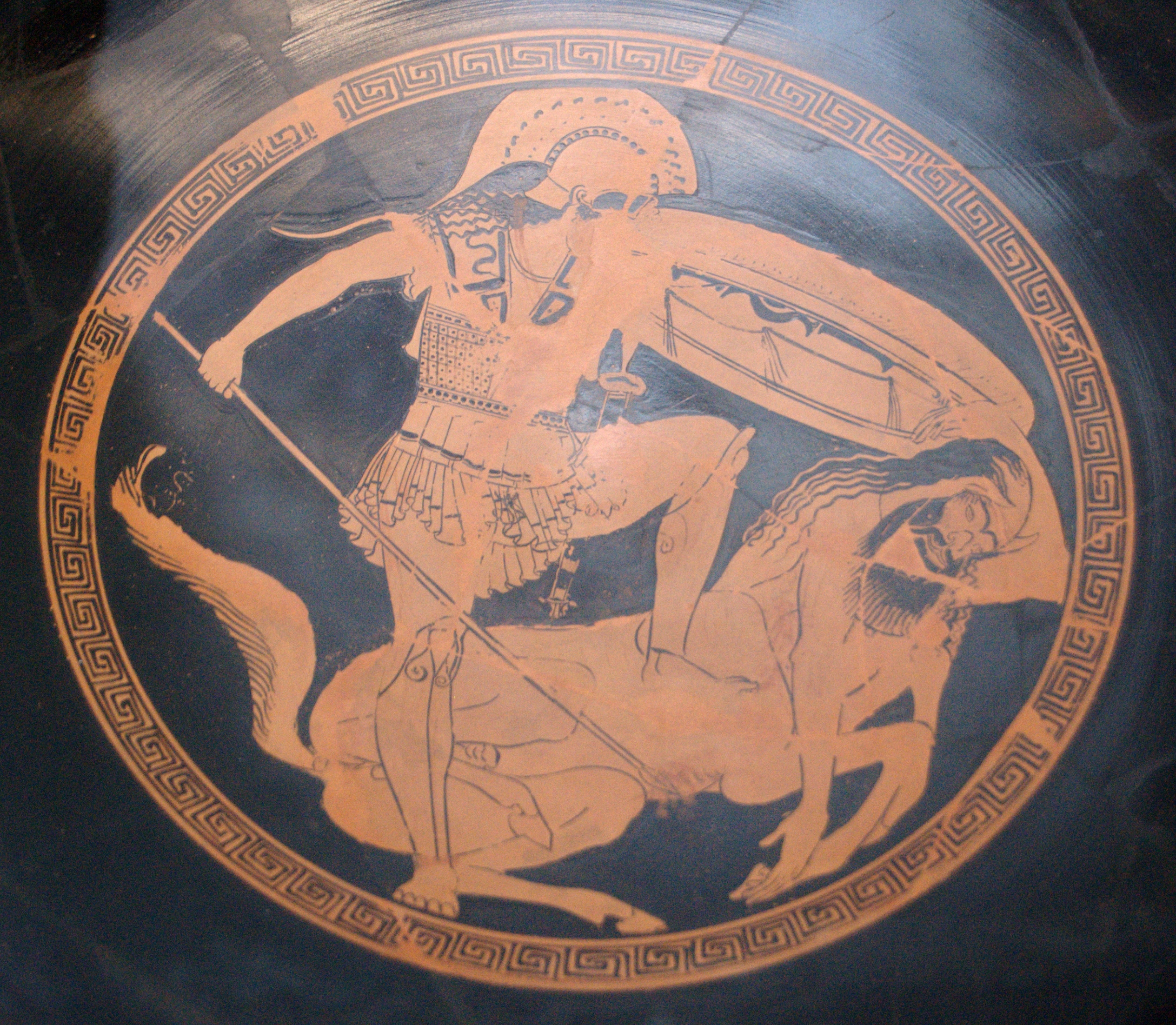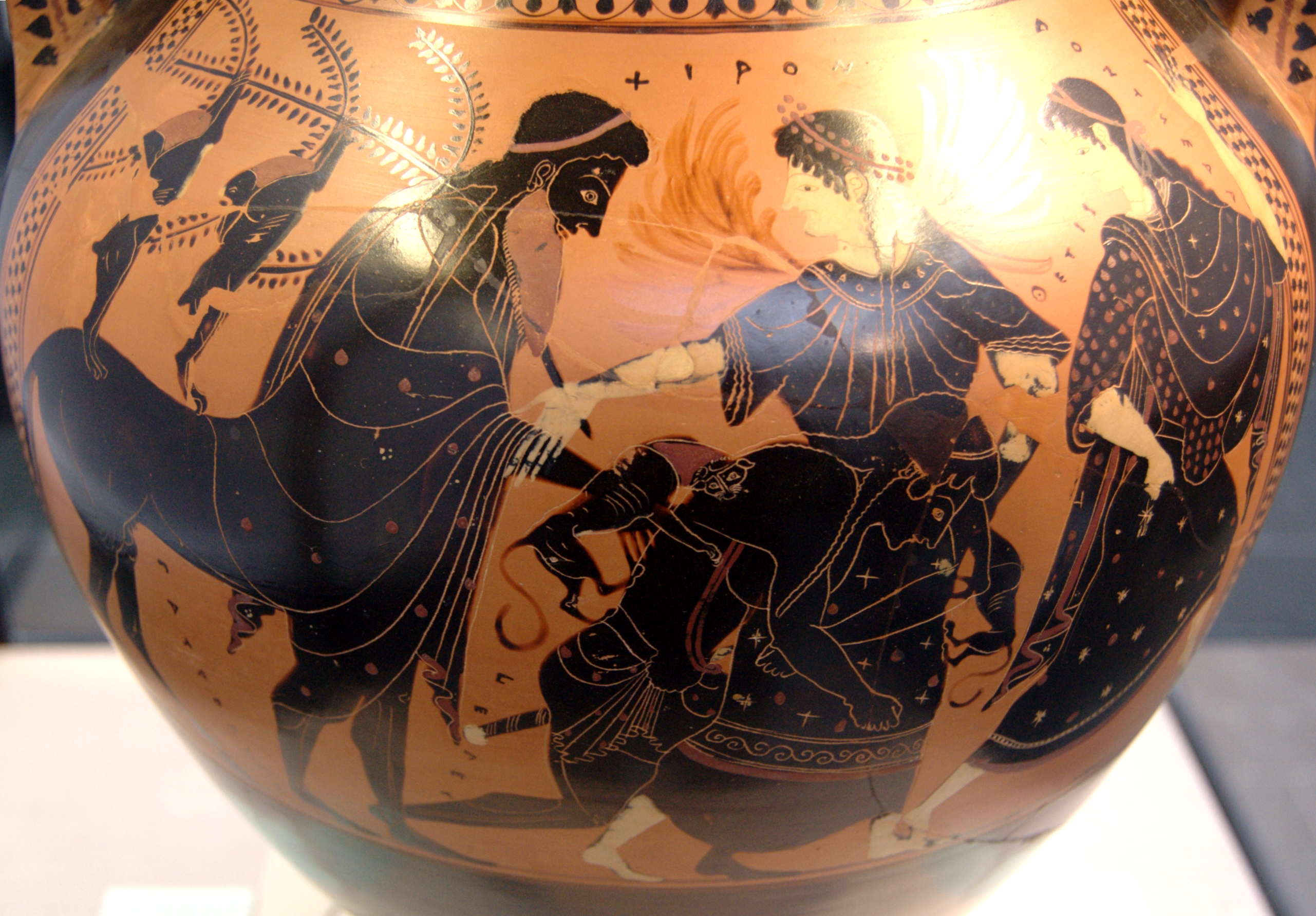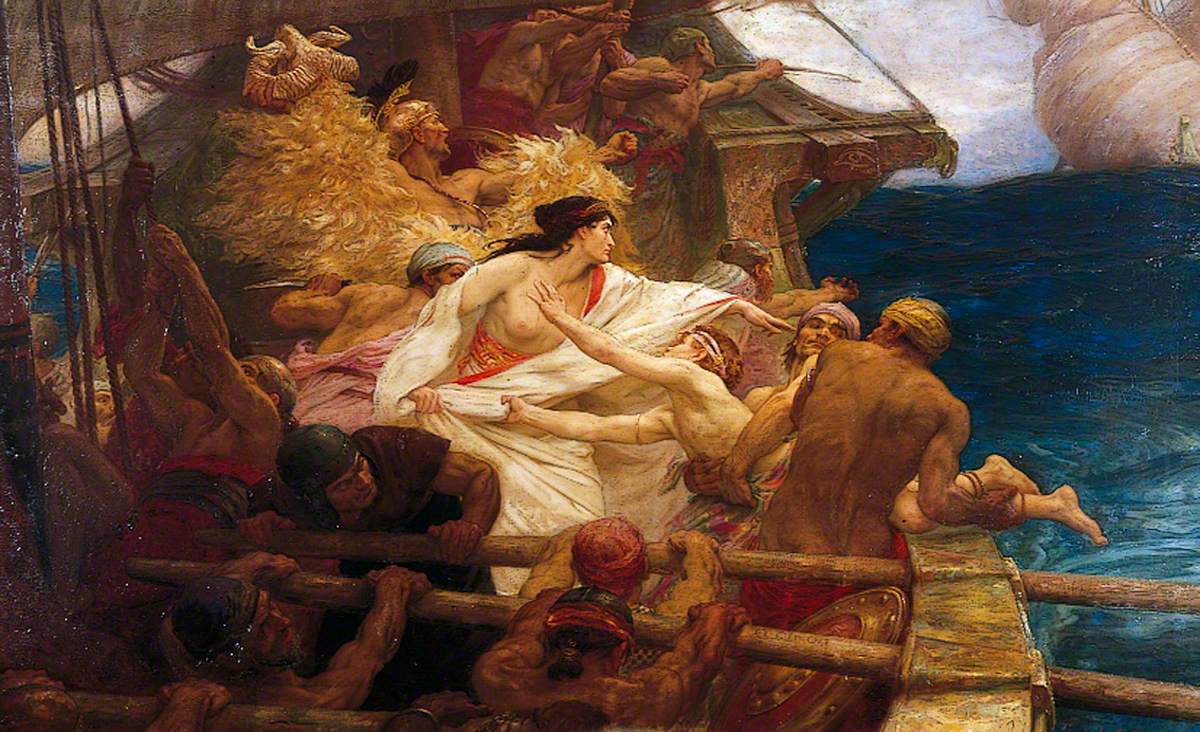|
Medea (1969 Film)
''Medea'' is a 1969 Italian film directed by Pier Paolo Pasolini, based on the ancient myth of Medea. Filmed in Göreme Open Air Museum's early Christian churches, Pisa, and the Citadel of Aleppo, it stars opera singer Maria Callas in her only film role. She does not sing in the movie. The film is largely a faithful portrayal of the myth of Jason and the Argonauts and the events of Euripides' play '' The Medea'' concerning the betrayal of Medea by Jason and his eventual demise at her hands. The film was received positively by critics but did not receive commercial success. According to film commentator Tony Rayns the film represents a committedly adversarial piece of art from the director who loved to challenge society. Rayns calls the film "a love song to Maria Callas" and describes the ending as "backing him (Pasolini) into a cul-de-sac" for the dark ending of the film which almost seems like a resignation from cultural production. Indeed, Pasolini's dramatic and adverse p ... [...More Info...] [...Related Items...] OR: [Wikipedia] [Google] [Baidu] |
Pier Paolo Pasolini
Pier Paolo Pasolini (; 5 March 1922 – 2 November 1975) was an Italian poet, filmmaker, writer and intellectual who also distinguished himself as a journalist, novelist, translator, playwright, visual artist and actor. He is considered one of the defining public intellectuals in 20th-century Italy, influential both as an artist and a political figure. A controversial personality due to his straightforward style, Pasolini's legacy remains contentious. Openly gay and an avowed Marxist, he voiced strong criticism of petty bourgeois values and the emerging consumerism in Italy, juxtaposing socio-political polemics with a critical examination of taboo sexual matters. A prominent protagonist of the Roman cultural scene of the post-war period, he was an established major figure in European literature and cinematic arts. Pasolini's unsolved murder at Ostia in November 1975 during an altercation with a young male prostitute prompted an outcry in Italy, and its circumstances continue ... [...More Info...] [...Related Items...] OR: [Wikipedia] [Google] [Baidu] |
Colchis
In Greco-Roman geography, Colchis (; ) was an exonym for the Georgian polity of Egrisi ( ka, ეგრისი) located on the coast of the Black Sea, centered in present-day western Georgia (country), Georgia. Its population, the Colchians are generally thought to have been an early Kartvelian languages, Kartvelian-speaking tribe ancestral to the contemporary western Georgians, namely Svans and Zans. According to David Marshall Lang: "one of the most important elements in the modern Georgian nation, the Colchians were probably established in the Caucasus by the Middle Bronze Age."''The Cambridge Ancient History'', John Anthony Crook, Elizabeth Rawson, p. 255 It has been described in modern scholarship as "the earliest Georgian formation", which, along with the Kingdom of Iberia, would later contribute significantly to the development of the Kingdom of Georgia and the Georgians, Georgian nation.Cyril Toumanoff, ''Studies in Christian Caucasian History'', pp. 69, 84Christopher ... [...More Info...] [...Related Items...] OR: [Wikipedia] [Google] [Baidu] |
Giuseppe Gentile
Giuseppe Gentile (born 4 September 1943) is a retired Italian triple jumper, who won a bronze medal at the 1968 Summer Olympics. Biography From 1962 to 1972 Gentile took part in 33 international competitions, including the 1968 and 1972 Summer Olympics. He won four international medals and six national titles: in the long jump (1968) and triple jump (1965, 1966, 1968, 1970, 1971). After finishing his sporting career, Gentile turned to acting. He appeared opposite Maria Callas in ''Medea'' by Pier Paolo Pasolini, in the role of Jason. Wallechinsky, David (1984). ''The Complete Book of the Olympics: 1896–1980.'' Triple Jump. p. 90. World records * Triple jump: 17.10 m ( Mexico City, 16 October 1968) * Triple jump: 17.22 m ( Mexico City Mexico City ( es, link=no, Ciudad de México, ; abbr.: CDMX; Nahuatl: ''Altepetl Mexico'') is the capital city, capital and primate city, largest city of Mexico, and the List of North American cities by population, most populous city in North ... [...More Info...] [...Related Items...] OR: [Wikipedia] [Google] [Baidu] |
Centaur
A centaur ( ; grc, κένταυρος, kéntauros; ), or occasionally hippocentaur, is a creature from Greek mythology with the upper body of a human and the lower body and legs of a horse. Centaurs are thought of in many Greek myths as being as wild as untamed horses, and were said to have inhabited the region of Magnesia and Mount Pelion in Thessaly, the Foloi oak forest in Elis, and the Malean peninsula in southern Laconia. Centaurs are subsequently featured in Roman mythology, and were familiar figures in the medieval bestiary. They remain a staple of modern fantastic literature. Etymology The Greek word ''kentauros'' is generally regarded as being of obscure origin. The etymology from ''ken'' + ''tauros'', 'piercing bull', was a euhemerist suggestion in Palaephatus' rationalizing text on Greek mythology, ''On Incredible Tales'' (Περὶ ἀπίστων), which included mounted archers from a village called ''Nephele'' eliminating a herd of bulls that were the scourge ... [...More Info...] [...Related Items...] OR: [Wikipedia] [Google] [Baidu] |
Chiron
In Greek mythology, Chiron ( ; also Cheiron or Kheiron; ) was held to be the superlative centaur amongst his brethren since he was called the "wisest and justest of all the centaurs". Biography Chiron was notable throughout Greek mythology for his youth-nurturing nature. His personal skills tend to match those of his foster father Apollo, who taught the young centaur the art of medicine, herbs, music, archery, hunting, gymnastics and prophecy, and made him rise above his beastly nature. Chiron was known for his knowledge and skill with medicine, and thus was credited with the discovery of botany and pharmacy, the science of herbs and medicine.Pliny the Elder, ''Naturalis Historia'7.56.3/ref> Like satyrs, centaurs were notorious for being wild, lusty, overly indulgent drinkers and carousers, violent when intoxicated, and generally uncultured delinquents. Chiron, by contrast, was intelligent, civilized and kind, because he was not related directly to the other centaurs due to ... [...More Info...] [...Related Items...] OR: [Wikipedia] [Google] [Baidu] |
Laurent Terzieff
Laurent Terzieff (27 June 1935, in Toulouse – 2 July 2010, in Paris) was a French actor. Biography Terzieff was the son of French ceramist ''Le Monde'', 3 July 2010 Marina and her husband , a n-born sculptor of Russian and Romanian descent who came to from |
Massimo Girotti
Massimo Girotti (18 May 1918 – 5 January 2003) was an Italian film actor whose career spanned seven decades. Born in Mogliano, in the province of Macerata, Girotti developed his athletic physique by swimming and playing polo. While studying engineering, he attracted the attention of Mario Soldati, who offered him a small part in the film '' Dora Nelson'' (1939), but it was not until later, in Alessandro Blasetti's '' La corona di ferro'' (''The Iron Crown'') (1941) and Roberto Rossellini's '' Un Pilota ritorna'' (''A Pilot Returns'') (1942), that he began to make an impression as a serious actor. In 1943 came a turning point in his career when Luchino Visconti cast him opposite the torrid Clara Calamai in ''Ossessione'' (''Obsession''), an earlier adaptation of the same novel on which Hollywood's '' The Postman Always Rings Twice'' is based. The film marked, in a sense, the birth of Italian neo-realism. Some of his notable post-war films include ''Caccia tragica'' (''The Tragic ... [...More Info...] [...Related Items...] OR: [Wikipedia] [Google] [Baidu] |
Creon (king Of Corinth)
In Greek mythology, Creon (; grc, Κρέων, Kreōn, lit=ruler), son of Lycaethus, was a king of Corinth and father of Hippotes and Creusa or Glauce, whom Jason would marry if not for the intervention of Medea. Mythology According to a lost play by Euripides summarized in the '' Bibliotheca'', Alcmaeon entrusted to Creon's care his two children by Manto—a son Amphilochus and a daughter Tisiphone. The latter grew up to be so pretty that Creon's wife sold her away as a slave, fearing that Creon might abandon her in favor of the maiden. Tisiphone was bought by her own father Alcmaeon, who failed to recognize her and did not get to know the truth until he came to Corinth to fetch his children. Creon is best known in connection with the myth of Jason and Medea mentioned above. He showed hospitality towards the couple, and later expressed consent for Jason to marry his daughter. Ultimately, he fell victim to Medea's subsequent revenge, getting burned to death as he was attemptin ... [...More Info...] [...Related Items...] OR: [Wikipedia] [Google] [Baidu] |
Creusa Of Corinth
In Greek mythology, Creusa (; Ancient Greek: Κρέουσα ''Kreousa'' "princess" ) or Glauce (; Γλαυκή "blue-gray"), Latin Glauca, was a princess of Corinth as the daughter of King Creon. Mythology In favor of Creusa, Jason abandoned Medea. In the version of the myth commonly followed by ancient tragedians, Medea obtained her revenge by giving Creusa a dress that had been cursed by the sorceress. The curse caused the dress, or Shirt of Flame to stick to Creusa's body and burn her to death as soon as she put it on. Hyginus' account :"To him ason Creon, son of Menoecus, King of Corinth, gave his younger daughter Glauce as wife. When Medea saw that she, who had been Jason’s benefactress, was treated with scorn, with the help of poisonous drugs she made a golden crown, and she bade her sons give it as a gift to their stepmother. Creusa took the gift, and was burned to death along with Jason and Creon." Pseudo-Apollodorus' account :"They ason and Medeawent to Cor ... [...More Info...] [...Related Items...] OR: [Wikipedia] [Google] [Baidu] |
Corinth
Corinth ( ; el, Κόρινθος, Kórinthos, ) is the successor to an ancient city, and is a former municipality in Corinthia, Peloponnese, which is located in south-central Greece. Since the 2011 local government reform, it has been part of the municipality of Corinth, of which it is the seat and a municipal unit. It is the capital of Corinthia. It was founded as Nea Korinthos (), or New Corinth, in 1858 after an earthquake destroyed the existing settlement of Corinth, which had developed in and around the site of ancient Corinth. Geography Located about west of Athens, Corinth is surrounded by the coastal townlets of (clockwise) Lechaio, Isthmia, Kechries, and the inland townlets of Examilia and the archaeological site and village of ancient Corinth. Natural features around the city include the narrow coastal plain of Vocha, the Corinthian Gulf, the Isthmus of Corinth cut by its canal, the Saronic Gulf, the Oneia Mountains, and the monolithic rock of Acrocorinth ... [...More Info...] [...Related Items...] OR: [Wikipedia] [Google] [Baidu] |
Absyrtus
In Greek mythology, Absyrtus (Ancient Greek: Ἄψυρτος) or Apsyrtus, was a Colchian prince and the younger brother of Medea. he was involved in Jason's escape with the golden fleece from Colchis The Absyrtides were named after him. Family Absyrtus was the son of Aeëtes, king of Colchis and a brother of Medea and Chalciope. His mother is variously given: Hyginus calls her Ipsia, Hesiod and the '' Bibliotheca'' call her Idyia,In Hesiod. ''Theogony960'' Idyia was the wife of Aeetes and the possible mother of his children including Absyrtus. Apollonius calls her Asterodeia, a Caucasian Oceanid and others Hecate,Diodorus Siculus4.45.5/ref> the Nereid Neaera or Eurylyte. A tradition followed by Pacuvius,Cicero, ''De Natura Deorum'3.48/ref> Justin, and Diodorus, provided Aegialeus as the name of the son of Aeëtes who was murdered by Medea. Absyrtus was also called Phaethon by the sons of the Colchians because he outshone all the youths. Mythology Early years As a ... [...More Info...] [...Related Items...] OR: [Wikipedia] [Google] [Baidu] |
Ares
Ares (; grc, Ἄρης, ''Árēs'' ) is the Greek god of war and courage. He is one of the Twelve Olympians, and the son of Zeus and Hera. The Greeks were ambivalent towards him. He embodies the physical valor necessary for success in war but can also personify sheer brutality and bloodlust, in contrast to his sister, the armored Athena, whose martial functions include military strategy and generalship. An association with Ares endows places, objects, and other deities with a savage, dangerous, or militarized quality. Although Ares' name shows his origins as Mycenaean, his reputation for savagery was thought by some to reflect his likely origins as a Thracian deity. Some cities in Greece and several in Asia Minor held annual festivals to bind and detain him as their protector. In parts of Asia Minor, he was an oracular deity. Still further away from Greece, the Scythians were said to ritually kill one in a hundred prisoners of war as an offering to their equivalent of Ares. ... [...More Info...] [...Related Items...] OR: [Wikipedia] [Google] [Baidu] |







